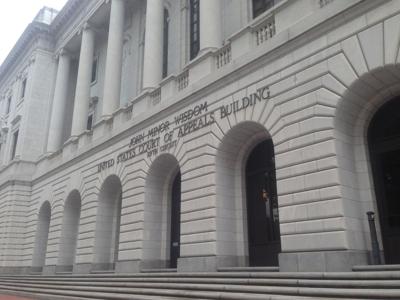WASHINGTON — Sprinkled among opinions released by what some observers call one of the most conservative U.S. Supreme Courts in history were scolds that the New Orleans-based 5th U.S. Circuit Court of Appeals had pushed the right-wing envelope too far.
Reacting to cases forwarded to them for review by the federal appellate courts, the Supreme Court ended its 2023-2024 term last week by issuing rulings that give presidents immunity from prosecution from many of their actions in office, while curbing federal agency power to administer laws by Congress.
As conservative as those decisions were, the justices also criticized the 5th Circuit for allowing some conservative causes to proceed.
One of 13 federal appellate courts, the 5th Circuit considers rulings from federal district courts in Louisiana, Texas and Mississippi. The Fifth has 17 full-time judges, a dozen of which were nominated by Republican presidents, including six by former President Donald Trump.
Lately, trial-level federal courts in the 5th Circuit have become the prime destination to test conservative legal theories. This isn’t new — when Republicans dominated Congress and the White House, Democratic litigants headed to the San Francisco-based 9th U.S. Circuit Court of Appeals for rulings more favorable to their causes.
The high court unanimously rejected June 13 a nationwide injunction halting the distribution of mifepristone pills, used in about two-thirds of abortions.
US Supreme Court decision on abortion pill
Writing for the majority, Justice Brett M. Kavanaugh, who was nominated by Trump, wondered why the 5th Circuit approved the injunction.
The majority also questioned if any of the plaintiffs had suffered any harm from the abortion drug — a key point in determining legal standing, which is the protocol for filing a lawsuit — something the 5th Circuit should have caught.
"A plaintiff’s desire to make a drug less available for others does not establish standing to sue," Kavanaugh wrote.
In a June 21 ruling, an 8-1 majority found Louisiana and Texas did not have the legal right to arrest and deport unauthorized immigrants. Kavanaugh wrote that allowing this case to proceed opened the door to future challenges about federal enforcement laws, “whether they be drug laws, gun laws, obstruction of justice laws, or the like.”
Justice Amy Coney Barrett, who grew up in Metairie and was nominated by Trump, hit pretty much the same theme in writing the 6-3 majority opinion on June 26, finding Louisiana, Missouri and five individuals failed to show that removing posts on social media platforms like Facebook was the result of government interference attempting to censor conservative viewpoints.
Barrett went further, finding evidence on which the 5th Circuit relied to support an injunction not just wanting but “clearly erroneous.”
During arguments from another major case this term — whether a state can restrict possession of firearms for domestic violence — Barrett read aloud a detailed accounting of the violence Zackey Rahimi of Arlington, Texas had inflicted on his girlfriend.
In the opinion authored June 21 by Chief Justice John Roberts, the 8-1 majority found that states could keep guns out of the hands of violent domestic abusers.
State ordered gun restriction for domestic abusers
The 5th Circuit had found that gun prohibition laws tied to state-level domestic violence restraining orders violated the Second Amendment to the U.S. Constitution.
Barrett, writing in a concurring opinion, found the 5th Circuit’s approach to tying gun restrictions to the historical record was too narrow. “Besides, imposing a test that demands overly specific analogues has serious problems,” she wrote, noting that it forces 21st-century regulations to follow 18th-century policy choices.
Even Justice Clarence Thomas rejected a conservative-led attack that would have sidetracked the Consumer Financial Protection Bureau, which regulates loans and was created in 2008. The bureau is funded by the Federal Reserve rather than Congress, which conservatives argued — and the 5th Circuit agreed — improperly skirted the Constitution by minimizing congressional oversight.
Writing for the 7-2 majority in May, Thomas recounted the history of appropriations going back to the founding.
“Litigants deliberately steer lawsuits that could have been brought anywhere into single judge divisions in the 5th Circuit,” Georgetown University Law Professor Steve Vladeck told the Texas Tribune in Austin. “They get favorable lower court rulings that make for great press. They get fairly favorable 5th Circuit rulings. Maybe they lose in the Supreme Court, but look at how much they've done, look at how much they've accomplished by that point.”

